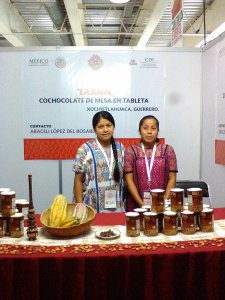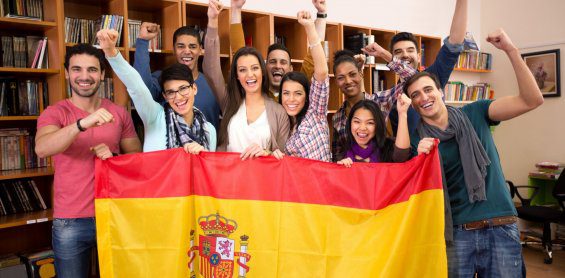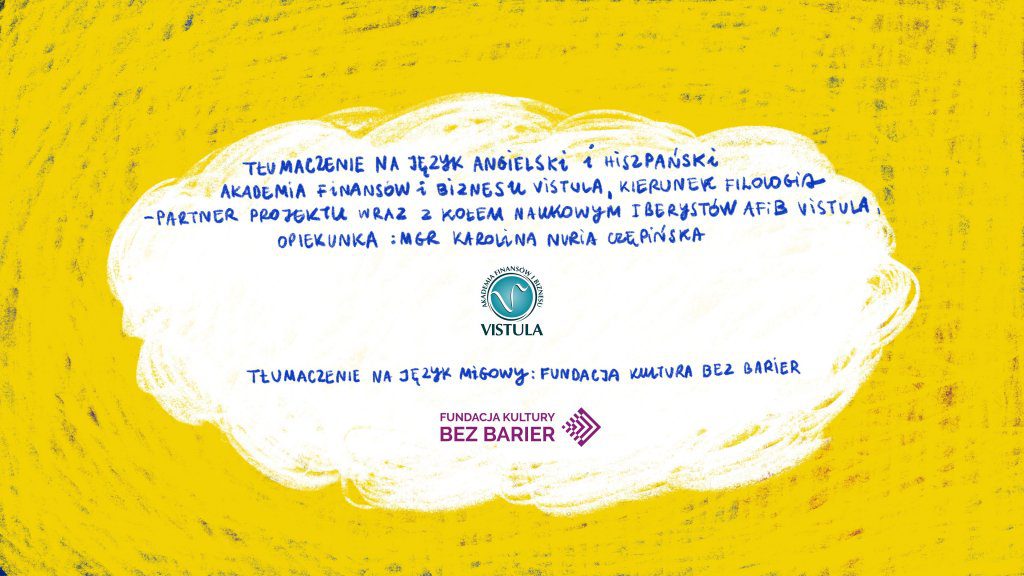We aim to promote knowledge about the history, culture, cinema and literature of Spanish-speaking countries
and regions. Activities of the Iberian Studies Science Club focus on sharing knowledge about Spain and the
countries of South America. Students will be organizing meetings at the University and host ambassadors of
Spanish-speaking countries, Spanish language translators of various fields and other interesting guests. We will
ask questions and expand our knowledge on issues that are interesting for us.
The Iberian Studies Science Club

About us
The Iberian Studies Science Club brings together enthusiasts of the culture, language, and literature of the Spanish-speaking regions. It is a fabulous form of activity through which you can develop both linguistic and social competences. It will allow you to broaden your horizons and meet new, interesting people. Getting involved in the activities of the Club is also great fun and it will bring you a lot of satisfaction.
Read lessAbout us
The Iberian Studies Science Club brings together enthusiasts of the culture, language, and literature of the Spanish-speaking regions. It is a fabulous form of activity through which you c…

How we operate, our goals and activities
How we operate, our goals and activities
We aim to promote knowledge about the history, culture, cinema and literature of Spanish-speaking countries
and regions. Activities of the Iberian Studies …


Projects and achievements
- Students of Spanish Philology, our Club members, had a unique opportunity to have an online meeting with Araceli an Indian from Mexico. Araceli told about her native Amuzgo people, their culture, traditions, and the art of the region. The Indian woman showed us traditional folk costumes, a weaving loom and discussed in detail the equipment for manual production of natural chocolate – a Guerrero specialty. Students could also participate in the Amuzgo language workshops. The Amuzgo language belongs to the so-called tonal languages, i.e., whistled languages. It was a truly amazing experience! For a couple of hours, Araceli took us on a trip to Mexico!
- We can be proud of participating in a prestigious project, partnered by our Philology. The project is co-financed by the National Cultural Centre (#kulturawsieci) and it is aimed at staging performances for children at the Puppet Theatre Gulliver in Warsaw, their recording and publishing via the Internet. Philology students prepared translations from Polish into Spanish and English in the form of subtitles, creating five 40-45-minute episodes. Since these are performances for children, the dialogues are not very elaborate. However, the Gulliver Theatre is famous for its wonderful songs, full of word-puns and implicit meaning, which pose a real challenge for translators. Students participated in the project as part of the Iberian Studies Science Club activities. It also allowed them to obtain credits for their internships. Participation in such a translation project is a very prestigious experience for students. It can enhance your CV and increase your employability on the translation market making you more attractive for your future employers.
- A wonderful music project was created thanks to the cooperation of the Vistula University Iberian Studies Science Club supervised by Karolina Nuria Czępińska (MA) and the Vistula University Choir conducted by Agnieszka Zińczuk. For the first time in history, our choir included in its repertoire a Spanish song. The “La Llorona” (The Wailer), is a song about a woman who played a great role in the culture of Mexican people who endow her with a metaphysical character, believing that she is an Aztec goddess, patron of the Chihuacóatl race. They maintain that before the Spanish conquest, she began to appear in the waters of Lake Texcoco, dressed in a white robe and mourning her race. WATCH
- Meeting with a sworn translator of the Spanish language, author of books in Spanish and a traveller: Liliana Poszumska.
- Meeting with a couple: Dorota Nieto-Kuczyńska and David Nieto-Rasiński, PhD, owners of a language school and publishing house, authors of Spanish textbooks.
- Meeting with Ernesto Puertas, PhD, DELE exams coordinator from the Cervantes Institute, who told us about state exams in Spanish and the possibilities that the Spanish language acumen offers on the labour market.
- Meetings with our University students from Spanish-speaking countries who told us about life in their countries (meeting with Iker from Santander, with Paula from Madrid, with Aldara from Vigo, Valeria from Colombia, Sarahí from Ecuador).
- Meetings with our Erasmus participants who take part in a mobility program in Spain.
- Meetings in the “Visit the Country” series: Spain, Colombia, Argentina, Mexico, Chile! (Filling out worksheets, film screenings, presentations, interactive exercises).
Our plans
- Participation in translation projects for theaters (preparation of subtitles in Spanish and English).
- A story about flamenco with a dance show presented by a professional dancer who will conduct workshops of this beautiful Spanish dance.
- A Spanish song evening – karaoke of famous and popular hits from Spain.
- Culinary workshops introducing participants to Spanish and Latin American flavours.
- A field game based on the information related to Spanish speaking countries.
- Evenings with Spanish poetry.
- Screenings of films from Spain and Latin America.
- Reading Spanish and Latin American literature in three languages: Spanish, English, and Polish.
- Presentation of Flamenco dance costumes and musical instruments: castanets and a short instruction how to play this percussion instrument.
- Meeting with a couple: Liliana Poszumska and Arkadiusz Wójcik – authors of the book “Toros bravos sueltos, czyli podróże pewnego małżeństwa” (Eng. Toros bravos sueltos, or the journeys of a certain couple) – a book written in Spanish and Polish.
- Meetings with students from Spanish-speaking countries who will talk about the life in their countries and answer our questions.
- Choir concert – repertoire in Spanish.
- Meeting with the library director of the Cervantes Institute and Visita guiada.
- Visiting an exhibition of a Spanish artist at the Cervantes Institute.
- Meeting with representatives of the Association of Polish Translators, outstanding translators on the Polish market.
- Meetings people travelling in Hispanic countries.
- Joint singing of Christmas carols in Spanish.
- Organization of Día de los Muertos at our University.
- A series of online meetings on the following topics:
1. Festivales en Guatemala: los borrilletes y cometas gigantes.
2. Astroturismo.
3. Movimiento 15-M.
4. Movimiento chicano.
5. Narcocultura.
6. Neurodidáctica en las clases de ELE.
7. Las mujeres en el cine de Pedro Almodóvar.
8. Lenguaje: la importancia de las metáforas sobre Covid-19 en España.
9. Generación McOndo.
10. La música española de los años 80.
Questions? Contact us!
E-mail: k.czepinska@vistula.edu.pl
Facebook: https://www.facebook.com/groups/571193230198631/
Club Manager:
Karolina Czepińska
E-mail: iberist@vistula.edu.pl